- Home
- Franklin W. Dixon
Into Thin Air Page 4
Into Thin Air Read online
Page 4
“Hmm.” Frank closed the browser. “Well, let’s see what we can find. You go take a shower. I’ll heat us up some oatmeal.”
We think alike.
A little over an hour later we pulled onto Lincoln Road. Bayport is a pretty standard northeastern town: There are ritzy parts and not-so-ritzy parts, but mostly in-between parts. This was a not-so-ritzy part. Lincoln Road sat between a line of seedy motels and strip malls and the river. It was lined with small houses, all of which looked like they’d seen better days.
Frank suddenly pulled over to the side of the road and turned off the engine. “Look,” he said, pointing to the house we’d seen on his computer: 45 Lincoln Road.
A nondescript silver sedan was pulling out. As we watched, it backed into the street and then drove off in the direction we’d just come from. As it passed, I recognized the driver as Doug Spencer. He stared straight ahead, a vague smile on his face. He didn’t seem to notice us.
When the car turned left and disappeared toward the main drag, Frank and I looked at each other.
“It’s on,” I said.
Frank pulled the car closer to number 45 and parked. We climbed out cautiously, looking all around us, but the neighborhood still appeared to be mostly asleep.
We glanced at each other once more and then darted up the path that led to number 45.
The house had a tiny porch that we eagerly climbed onto. The house was quiet, and I pressed my ear to the door. Nothing. There was a small window to the right, and I peered in, but saw nothing except for a totally normal living room, neatly arranged, television off. Photos of smiling children were arranged on the far wall.
“Come on,” whispered Frank.
He led me down off the porch, and we crept around to the left. Another window looked into what seemed to be a small office—I could see bookshelves near the ceiling—but without the porch, we were too short to see in.
“I’ll boost you up,” Frank suggested after a few seconds. He crouched down on the ground and made a stirrup out of his hands. I stuck my foot into it, and he lifted me up as much as he could.
“Oof! Aunt Trudy’s been feeding you too well,” he gasped.
“That goes for both of us,” I hissed back as I grabbed onto the sill and managed to pull myself up enough to see inside.
Sure enough, it was a small, neat home office. An older computer sat on a wooden desk, attached to a printer. More framed photos of the same smiling children were scattered around the desk and the walls. One little girl of two or three with very short blond hair posed in a cowboy hat, giggling at the camera. There was also a set of older twins posed in holiday finery. On the far wall I saw that Spencer had framed some old postcards of Funspot, dating back (it looked like) to the 1950s. On that same wall was a framed photo of Spencer himself with someone dressed like Giggly the Funosaur, Funspot’s official mascot.
Suddenly a sound erupted from the other side of the house: “WAHHH . . .”
Frank jumped and suddenly lost his grip. I went plummeting down, my fingernails scraping the clapboard as I slid. It wasn’t far—only a few feet—but it was enough to get some splinters and land hard on my right hip.
The sound came again. It seemed to pierce the sleepy weekend-morning air. “WAHHHH!”
Icy dread crept down my spine as I pulled myself to my feet. What was that?
I looked at my brother. Frank’s expression seemed to ask the same question.
“Around back,” he said simply.
I nodded. We wasted no time in bolting toward the back of the house, only to find a tall chain-link fence that surrounded the backyard.
“Crap,” I whispered.
Frank cast a disapproving glance at me. “This fence is no match for the Hardy Boys!” he pointed out, scrambling halfway up in seconds.
“I know,” I said, climbing up behind him. “OW! It’s just, my hip is still sore.”
I checked the backyard for any sign of a dog. Our investigative experience had taught us that fences like this usually contained a dog. Most often a large, sharp-toothed, ill-tempered dog. I patted the plastic bag I’d tucked into my shirt pocket. It contained a fresh pork bone from the local butcher, which was usually enough to make friends with even the nastiest dog. I always come prepared when we “visit” a strange house.
The backyard appeared empty. I scrambled up behind Frank, trying to put most of my weight on my noninjured hip. It still hurt, though. Ouch. Ouch. Ouch.
“Here we are,” Frank said, gesturing around a totally nondescript backyard. Neatly cut grass, some weeds around the edges. A slightly beat-up table with two chairs. And lots of bushes.
Big, heavy evergreen bushes flanked the back of the house, broken only by a short set of stairs that led down from a back door. The bushes made it difficult to see anything.
Frank crept closer and peered down into the bush on the right.
“WAHHH!”
The sound came again, and it made me jump. I said what I knew both of us were thinking: “It sounds like someone crying.”
Frank pointed into the bush. “There are windows almost flush with the ground line. It must be a basement. It sounds like the crying is coming from there.”
I crept closer behind him. Frank reached out to pull some branches of the bush apart, then yelped and yanked his hand back. “Thorns!”
“Great,” I muttered. Frank sighed and reached inside his jacket to produce two pairs of work gloves. We’ve gotten enough scrapes and cuts in our day to know to come prepared.
He handed a pair to me. “Let’s do this.”
I put on the gloves and grabbed a branch. Peering inside, I could see that there were a good eight feet of bush before we got to the house. My stomach sank, but I knew we didn’t really have a choice. We had to find out what was happening in that basement. Had to.
Frank pushed the bushes aside farther and stepped in. “Ow!” he said almost immediately. “It got me on the face!”
I looked into the uninviting, thorn-encrusted branches and sighed. I stepped in behind him—and immediately felt sharp thorns scraping against my side when my shirt got caught on a branch. “Ow,” I said. “I hate this bush!”
“This bush is the worst,” Frank agreed. “It’s possessed by demons or something. OUCH!”
“WAHHHH!”
The sound was much closer now. It made my blood run cold and reminded me that there was no time to waste. In front of me a huge cluster of branches twined together, making it hard to see what lay beyond. I grabbed the knot in the middle with my work gloves and pulled it toward me, revealing a tiny space—
“AAAAAAAAAUUUGHHH!” Something small, orange, and very angry launched itself at my face and dug in, scratching me worse than the bush could have hoped for.
“WAHHHH!” the evil beast screeched.
I stumbled backward through the bush, hitting every thorn and branch that I had so carefully pushed aside just seconds before. I had to get away from that thing. Suddenly I heard Frank roar—
“NOOOOOOOOOOOO!”
—and I heard a sound like Ssssss!
Then a horrible stench filled the air.
As I collapsed backward onto the lawn, I saw something black and white stream past and disappear through a hole beneath the fence. After a moment, the orange beast dislodged its claws from my cheeks and followed, letting out a nasty “WAHHH!” in parting.
I lay on my back and looked at the sky. All was silent now. Frank stumbled out of the bushes, groaning. He smelled awful.
“What happened?” I moaned.
Frank collapsed beside me. The stench intensified, and I actually had to climb back up to my feet to get away from him. My hip throbbed again.
“It was a skunk,” he said wonderingly, shaking his head. “It was a skunk fighting with a feral cat. The cat was what we heard. That sound like crying.”
I frowned, looking at my brother as he slowly got to his feet. “I don’t know if I can ride home with you,” I said.
He glared at me. “Great.
Then walk.”
“Maybe I could get a cab,” I murmured. I was serious. Frank plus skunk was the worst thing I had ever smelled.
“Let’s take a quick look around,” he growled at me. “Then we’ll get out of here. This was a bad idea.”
I wasn’t so sure it was a bad idea, so much as we had been bested by the elements. It just goes to show, no matter how much you prepare as an investigator, you can’t prepare for the unexpected.
I sensed from Frank’s expression, however, that he wasn’t looking for a philosophical discussion.
We peered in windows, pressed our ears against them. It was all the same, though: ordinary. No sign of Daisy. No sign that she had ever been there.
So why had Hector attacked Doug Spencer?
Frank swiped at his eyes.
“Are you crying?” I asked. I wasn’t judging. I would cry if I smelled like him too.
He stopped and glared at me. “No. The . . . skunk stink is getting in my eyes and irritating them. You’d better drive home.”
I noted that he was ignoring how I’d said maybe I could get a cab, and I decided that was probably for the best. “All right,” I said with a sigh.
Frank tossed me the keys. Oh, they smelled. I tried to ignore it as I stepped up to the back door and pressed my nose one last time against the small window that led into the kitchen.
I heard a sudden yelp from my brother, but before I could react, a gruff voice growled into my ear, “Enjoying the view?”
Then a hand grabbed the back of my collar and threw me down the steps onto the ground.
KIDS TODAY
7
FRANK
THE MAN THREW OPEN A gate in the fence and crashed in before I could warn Joe. I managed a kind of pitiful sound—a yelp, maybe—before the man growled something in my brother’s ear and tossed him down the two steps to the ground.
As the man turned to look down at Joe, I got my first good look at him.
“Doug Spencer?” I croaked.
As Joe groaned, Spencer held up a cell phone. “My home security system texts me when there’s been a disturbance,” he said. “When it said someone was scratching at the windows, I assumed it was those darned feral cats that always hang around. Instead I find two nearly grown men skulking around my backyard. What’s your explanation?” He frowned, looking us up and down. “You two don’t look like the typical neighborhood hooligans. Though you smell terrible.” He wrinkled his nose at me.
“I had a run-in with a skunk,” I began, then immediately realized that probably wasn’t the explanation he was looking for. “Mr. Spencer, I’m so sorry. It’s just—we thought—we heard that—”
I broke off, realizing that there was probably no explanation that would seem reasonable to him.
Joe struggled to a sitting position and winced. “We’re friends of Daisy Rodriguez,” he said. “And we heard—well, we know that—we know her father was here last night.”
Spencer made a noise that sounded like a growl. He turned away, then sighed.
“That poor man,” he said finally. “I wouldn’t wish what happened with his daughter on anybody.”
I glanced at Joe. “Do you know why Hector was here?” I asked, figuring that getting right to the point would be appreciated.
Spencer shrugged. “Do I know? Yes. Do I understand it? No.” He paused, curling his lip. “He said he’d been getting strange e-mails from me. E-mails claiming that I knew where Daisy was. But I never sent any such thing.”
I looked at Joe, and he nodded slightly. E-mails. So much in this case was coming down to e-mails—first from the Piperatos, though they claimed not to have sent those, and now from Doug Spencer.
“Sir,” I said, “I don’t mean to be disrespectful, but . . . Can you prove it?”
Spencer turned and glared at me. For a second I regretted my words, thinking he was seriously going to hit me. But then he softened. “Guess you must care about that girl,” he muttered, and shook his head. “The police have been here and looked all over my computers. The e-mails he got didn’t come from this house, that’s for sure. The account wasn’t one I’d even heard of. Only thing I can think of is someone opened it in my name.”
Joe looked thoughtful. “Mr. Spencer, this might be a weird question, but do you have any enemies?”
Spencer laughed, a dry sound. “Enemies?” he asked. “No. I’ve been living in this same neighborhood for fifty years. I owned Funspot for almost thirty, and though I wished I’d kept it up better, I always felt good knowing that I’d brought lots of kids happiness. The only person I argued with recently is Hector Rodriguez, because I don’t think he gave me a fair price for that park.”
I cocked my head. “We heard on the news you were thinking of buying it back,” I said.
Spencer nodded. His expression changed, and he looked almost wistful. “I sure would have liked to,” he said. “But my accountant said it’s impossible.”
Joe glanced at the house. “What about the money Hector paid you?” he asked. He wasn’t saying it, but I knew he was thinking that the money hadn’t gone into a new house or car. “I’m guessing he’d take less than that, under the circumstances.”
Spencer shrugged, looking sad now. “Doesn’t much matter. My little granddaughter, Tanya . . . She has leukemia. Half the money from Funspot went toward her treatment. I can’t pull together enough to make what Hector’s asking. And even if I could, I’m getting too old. For thirty years, that park took every one of my waking moments. I loved running it. But those days are over.” He paused, and his mouth settled into a small smile. “Now I have plenty of time to read, go to Kiwanis meetings.” He laughed. “And spend time with my grandchildren, which is what I really care about.”
Joe nodded respectfully. “How’s Tanya doing?” he asked gently.
Spencer smiled. “Better,” he said. “I hope we have many more years to spend together. And I hope we’ll get along when she’s a teenager like you boys.” He paused, and his face darkened. “The other thing about Funspot . . . If I’m being honest, that whole Death Ride thing disturbed me. The way kids were flocking there to go on some ride they thought might hurt them.” He shook his head. “I’m just not sure I understand kids today.”
I looked at my brother. “Honestly, sir . . . I’m not sure we do either.”
Spencer looked at the house, then turned back to us. “Well, boys, if we’re all square here, I would appreciate it if you got off my lawn.”
Fair enough. “Of course, sir,” Joe said. He held out his hand, and Spencer shook it. “Sorry again.”
I held out my hand too, but Spencer just looked at it. “I think I’d rather not,” he said.
Oh, right. I stank. “No problem, sir. Have a nice weekend.”
Spencer held the gate open, and Joe and I scrambled through. We took the walk back to our car in silence.
Once Joe had unlocked the doors and we’d climbed in, I spoke. “That wasn’t our shining hour.”
Joe snorted. “Ugh. Oh man, you really stink.” He opened all the windows, then pulled into the street.
“So what do we know?” I asked. The neighborhood seemed to be waking up; I saw a young guy in a hoodie, the hood pulled up, darting down the sidewalk. There was no traffic, so Joe made a quick left back to the main drag, and made an easy right.
Joe sighed. “Not enough?” he said. “Okay, it’s looking more likely that the Piperatos didn’t do it. Whoever did do it really wants us to stop investigating.”
“Right,” I said. Our run-in with Poky the rattlesnake had made that more than clear. “And whoever did it seems to have access to Funspot, even though it’s been closed ever since Daisy disappeared,” I pointed out, thinking of Poky being removed from the Jungle Fun! exhibit.
“Whoever did it created a fake e-mail account for Doug Spencer to implicate him,” Joe added.
I sighed. It was frustrating how none of the things we knew seemed to be related.
The traffic light in front of us fl
ashed from green to yellow, and I saw Joe move his foot to the brake. We were going pretty fast—it was the main drag, after all—but weirdly, the car didn’t slow.
“Joe,” I said, concerned. “Hit the brake!”
“I am,” Joe said, pumping the pedal now. But the car didn’t slow at all. The traffic light turned red as we hurtled toward the intersection. And suddenly I saw the one other car out this early on a Saturday morning—a huge Express Delivery truck!
Joe screamed. I leaned forward, bracing myself against the dashboard. There was nothing we could do.
The truck was speeding toward the intersection—right at us!
GETTING REAL
8
JOE
IT SEEMED TO BE HAPPENING in slow motion, but I knew it was anything but. We sped into the intersection, unable to stop. The truck was hurtling toward us now, and I could see the driver’s expression change when he realized we weren’t stopping: First it was confusion, then anger, then very quickly, fear.
His mouth opened in a scream that matched my own. I grabbed the wheel, and then suddenly something came back to me. I pictured myself in driver’s ed with Coach Gerther, the unair-conditioned room sweltering in the summer heat, one of the countless gruesome videos used to terrify teenagers into driving responsibly playing on the ancient television.
Coach Gerther suddenly paused the video (yes, video—this film was from the 1980s at the latest) and held up the remote. “What would you do in this situation?” he asked. “Your brakes fail. You can’t stop. What now?”
“Put the car in neutral, turn the wheel, and try to steer onto an upgrade,” I whispered now, scrambling for the gearshift.
“What?” Frank screamed.
I grabbed the gearshift and shoved with all my might until the car was in neutral. The engine noise quieted, and as I turned the wheel, we spun out of the truck’s path. On the opposite corner was a pancake restaurant with a steep circular driveway. I pulled in, the car slowing as the upgrade became steeper. Finally, just before the crest of the driveway, we crept to a stop, and I put on the emergency brake to prevent us from sliding backward.

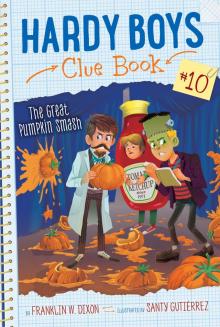 The Great Pumpkin Smash
The Great Pumpkin Smash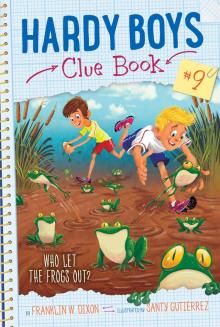 Who Let the Frogs Out?
Who Let the Frogs Out?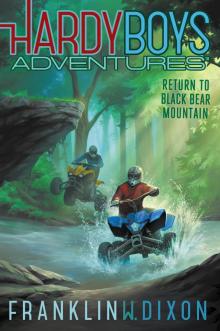 Return to Black Bear Mountain
Return to Black Bear Mountain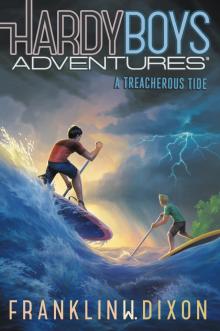 A Treacherous Tide
A Treacherous Tide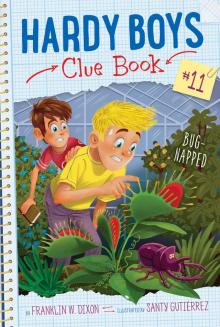 Bug-Napped
Bug-Napped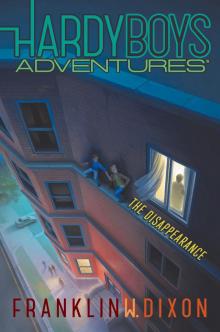 The Disappearance
The Disappearance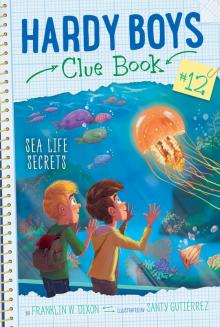 Sea Life Secrets
Sea Life Secrets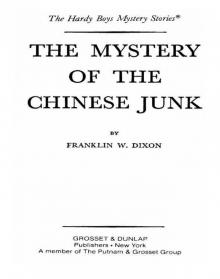 The Mystery of the Chinese Junk
The Mystery of the Chinese Junk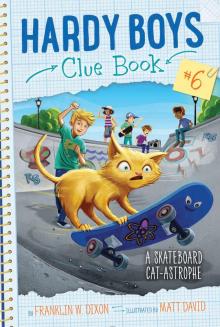 A Skateboard Cat-astrophe
A Skateboard Cat-astrophe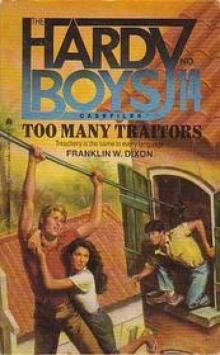 Too Many Traitors
Too Many Traitors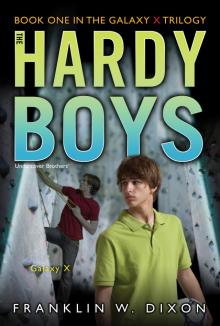 Galaxy X
Galaxy X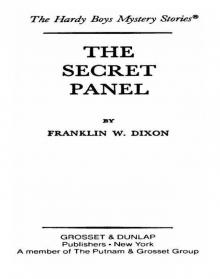 The Secret Panel
The Secret Panel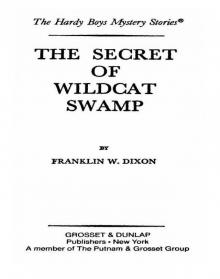 The Secret of Wildcat Swamp
The Secret of Wildcat Swamp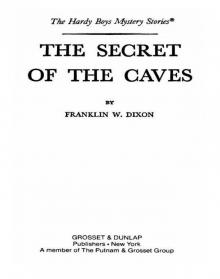 The Secret of the Caves
The Secret of the Caves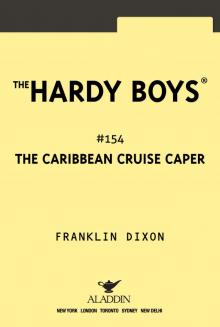 The Caribbean Cruise Caper
The Caribbean Cruise Caper Without a Trace
Without a Trace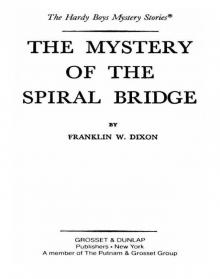 The Mystery of the Spiral Bridge
The Mystery of the Spiral Bridge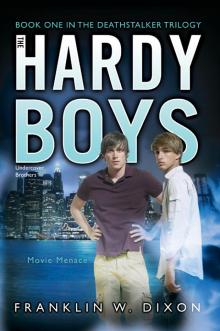 Movie Menace
Movie Menace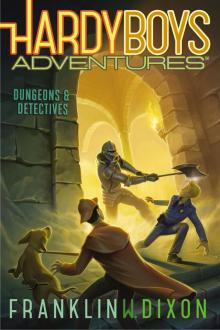 Dungeons & Detectives
Dungeons & Detectives Water-Ski Wipeout
Water-Ski Wipeout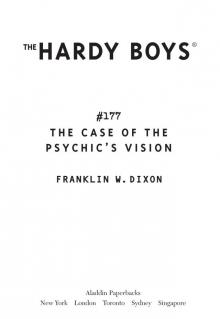 The Case of the Psychic's Vision
The Case of the Psychic's Vision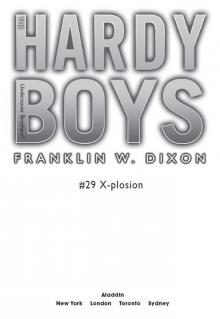 X-plosion
X-plosion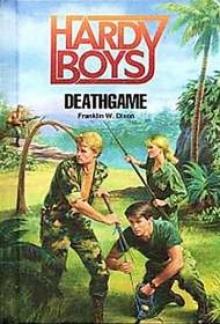 Deathgame
Deathgame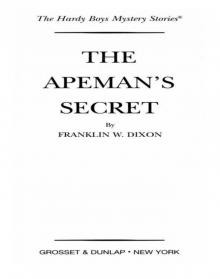 The Apeman's Secret
The Apeman's Secret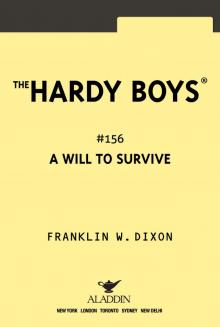 A Will to Survive
A Will to Survive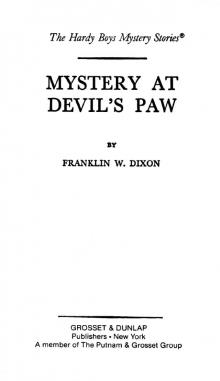 Mystery at Devil's Paw
Mystery at Devil's Paw Blood Money
Blood Money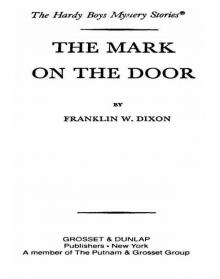 The Mark on the Door
The Mark on the Door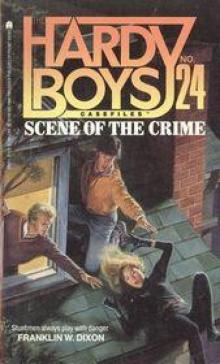 Scene of the Crime
Scene of the Crime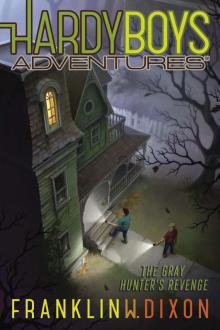 The Gray Hunter's Revenge
The Gray Hunter's Revenge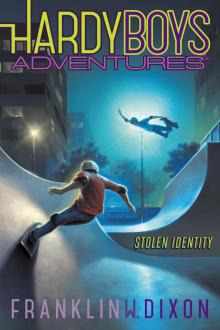 Stolen Identity
Stolen Identity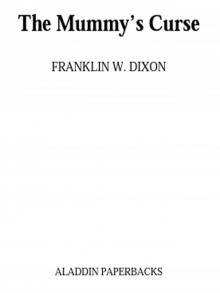 The Mummy's Curse
The Mummy's Curse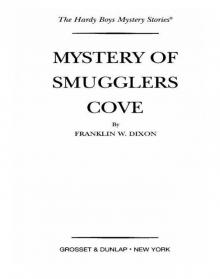 Mystery of Smugglers Cove
Mystery of Smugglers Cove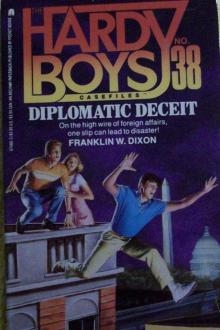 Diplomatic Deceit
Diplomatic Deceit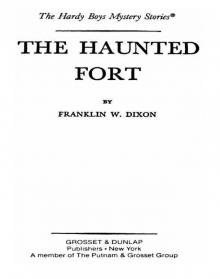 The Haunted Fort
The Haunted Fort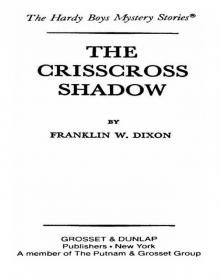 The Crisscross Shadow
The Crisscross Shadow Secret of the Red Arrow
Secret of the Red Arrow Trial and Terror
Trial and Terror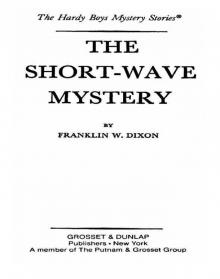 The Short-Wave Mystery
The Short-Wave Mystery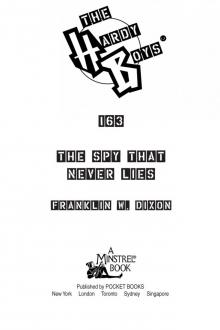 The Spy That Never Lies
The Spy That Never Lies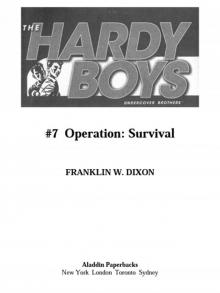 Operation: Survival
Operation: Survival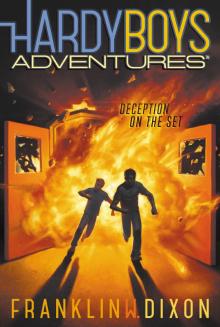 Deception on the Set
Deception on the Set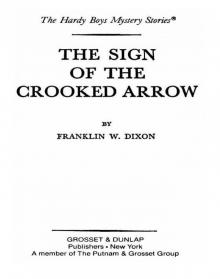 The Sign of the Crooked Arrow
The Sign of the Crooked Arrow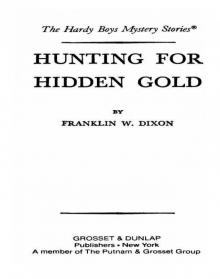 Hunting for Hidden Gold
Hunting for Hidden Gold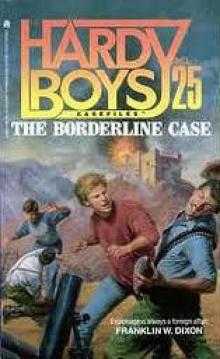 Disaster for Hire
Disaster for Hire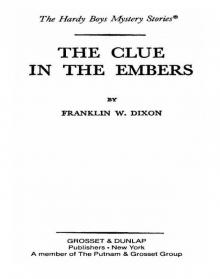 The Clue in the Embers
The Clue in the Embers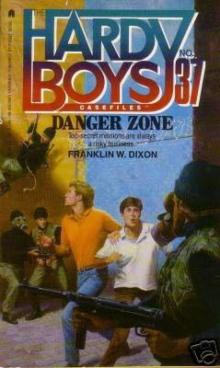 Danger Zone
Danger Zone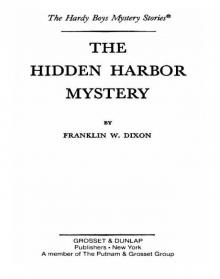 The Hidden Harbor Mystery
The Hidden Harbor Mystery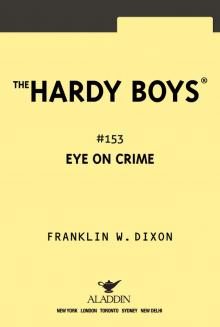 Eye on Crime
Eye on Crime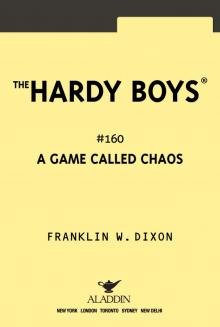 A Game Called Chaos
A Game Called Chaos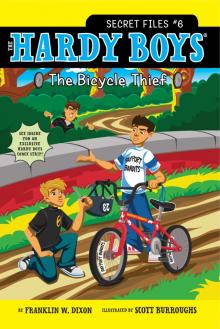 The Bicycle Thief
The Bicycle Thief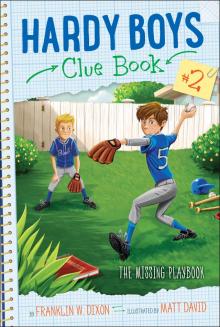 The Missing Playbook
The Missing Playbook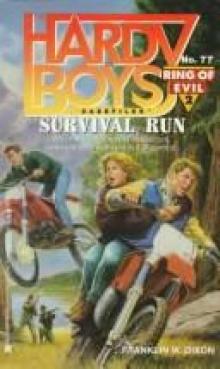 Survival Run
Survival Run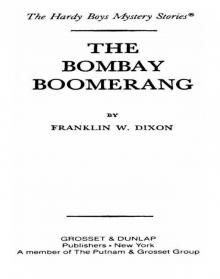 The Bombay Boomerang
The Bombay Boomerang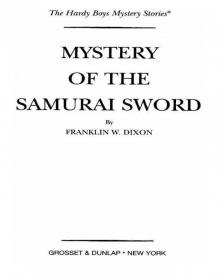 Mystery of the Samurai Sword
Mystery of the Samurai Sword Burned
Burned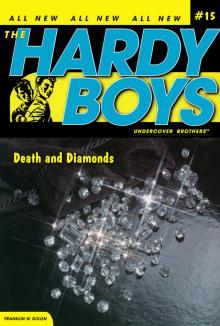 Death and Diamonds
Death and Diamonds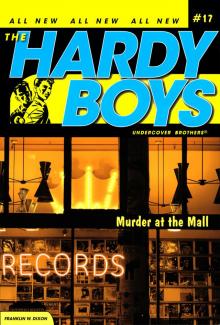 Murder at the Mall
Murder at the Mall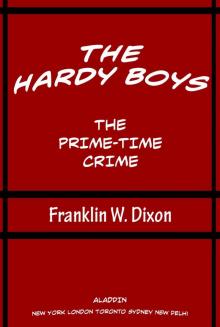 The Prime-Time Crime
The Prime-Time Crime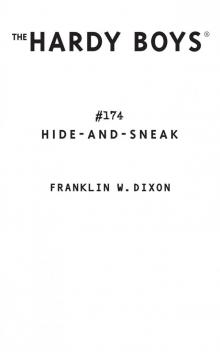 Hide-and-Sneak
Hide-and-Sneak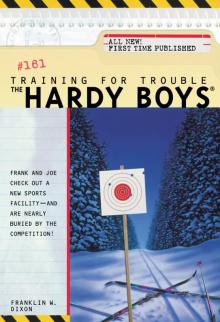 Training for Trouble
Training for Trouble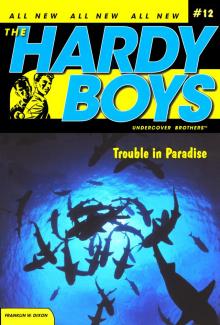 Trouble in Paradise
Trouble in Paradise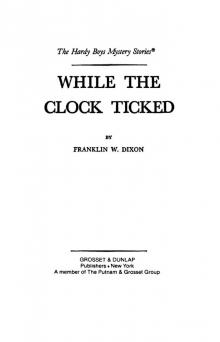 While the Clock Ticked
While the Clock Ticked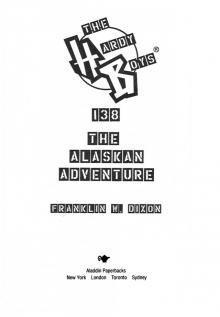 The Alaskan Adventure
The Alaskan Adventure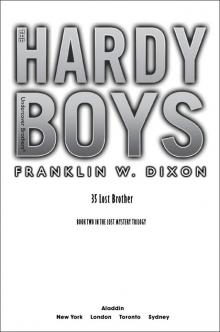 The Lost Brother
The Lost Brother Tunnel of Secrets
Tunnel of Secrets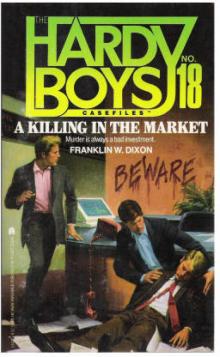 A Killing in the Market
A Killing in the Market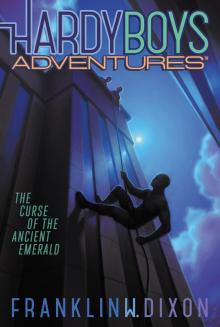 The Curse of the Ancient Emerald
The Curse of the Ancient Emerald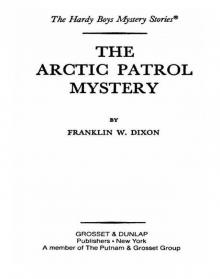 The Arctic Patrol Mystery
The Arctic Patrol Mystery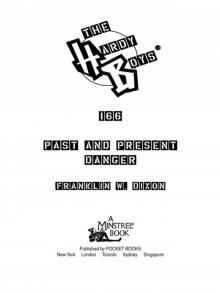 Past and Present Danger
Past and Present Danger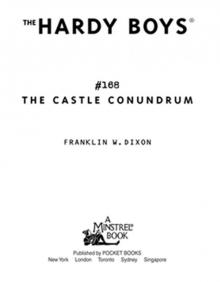 The Castle Conundrum (Hardy Boys)
The Castle Conundrum (Hardy Boys)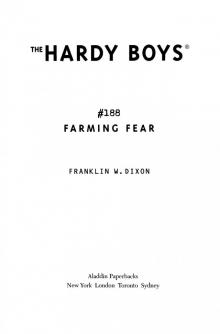 Farming Fear
Farming Fear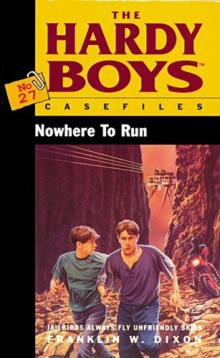 Nowhere to Run
Nowhere to Run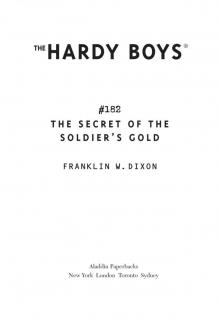 The Secret of the Soldier's Gold
The Secret of the Soldier's Gold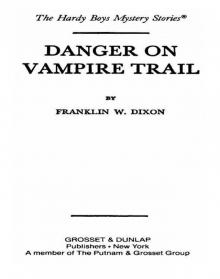 Danger on Vampire Trail
Danger on Vampire Trail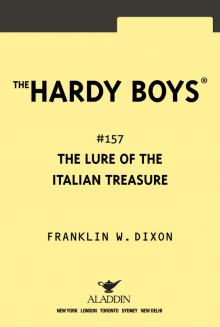 The Lure of the Italian Treasure
The Lure of the Italian Treasure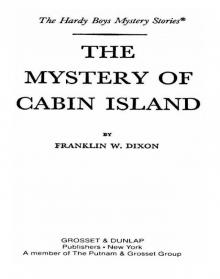 The Mystery of Cabin Island
The Mystery of Cabin Island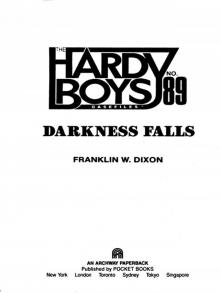 Darkness Falls
Darkness Falls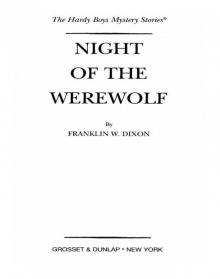 Night of the Werewolf
Night of the Werewolf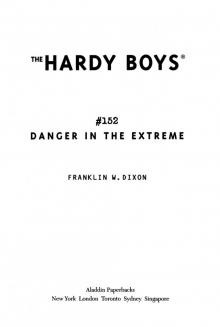 Danger in the Extreme
Danger in the Extreme The Lazarus Plot
The Lazarus Plot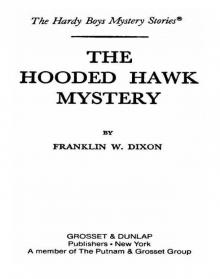 The Hooded Hawk Mystery
The Hooded Hawk Mystery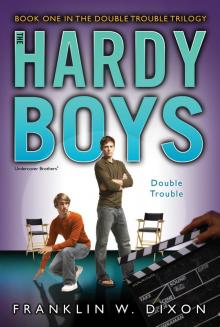 Double Trouble
Double Trouble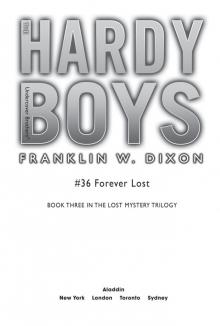 Forever Lost
Forever Lost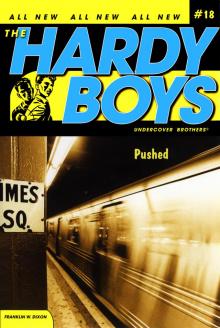 Pushed
Pushed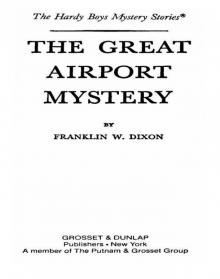 The Great Airport Mystery
The Great Airport Mystery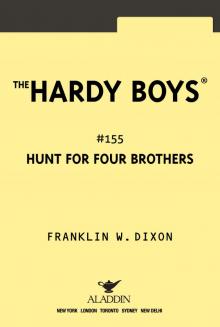 The Hunt for Four Brothers
The Hunt for Four Brothers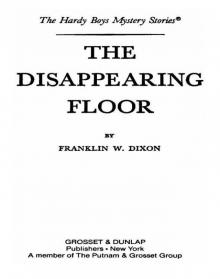 The Disappearing Floor
The Disappearing Floor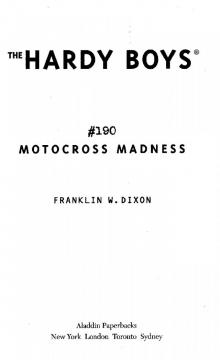 Motocross Madness
Motocross Madness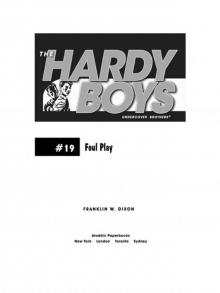 Foul Play
Foul Play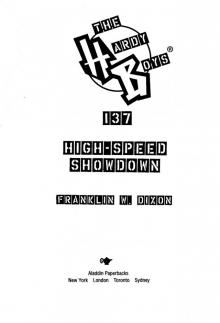 High-Speed Showdown
High-Speed Showdown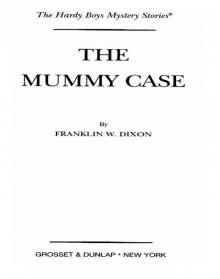 The Mummy Case
The Mummy Case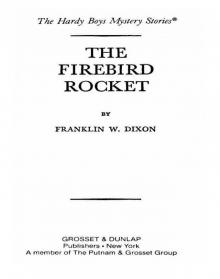 The Firebird Rocket
The Firebird Rocket Trouble in Warp Space
Trouble in Warp Space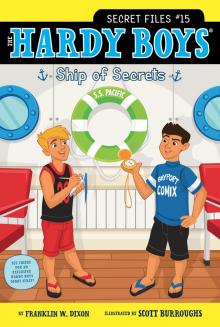 Ship of Secrets
Ship of Secrets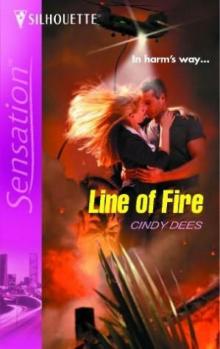 Line of Fire
Line of Fire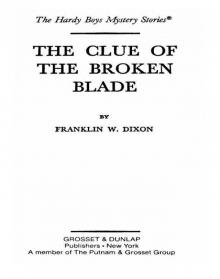 The Clue of the Broken Blade
The Clue of the Broken Blade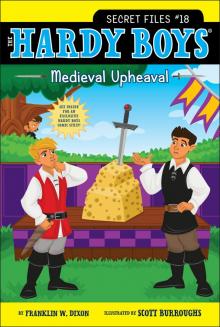 Medieval Upheaval
Medieval Upheaval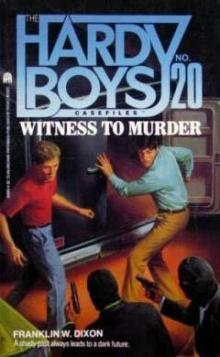 Witness to Murder
Witness to Murder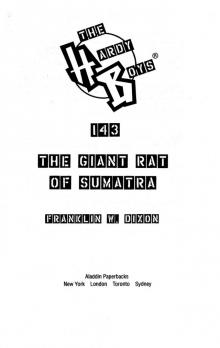 The Giant Rat of Sumatra
The Giant Rat of Sumatra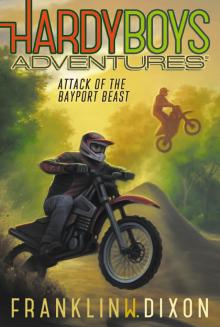 Attack of the Bayport Beast
Attack of the Bayport Beast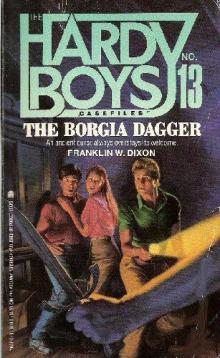 The Borgia Dagger
The Borgia Dagger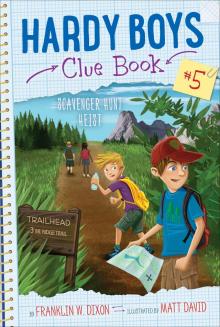 Scavenger Hunt Heist
Scavenger Hunt Heist No Way Out
No Way Out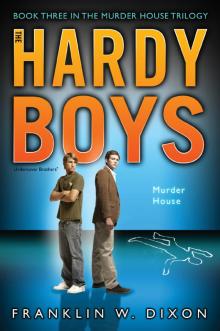 Murder House
Murder House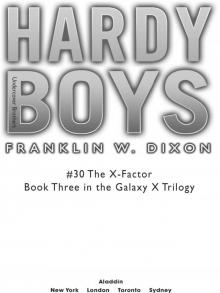 The X-Factor
The X-Factor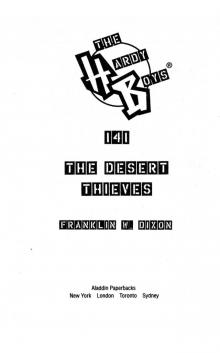 The Desert Thieves
The Desert Thieves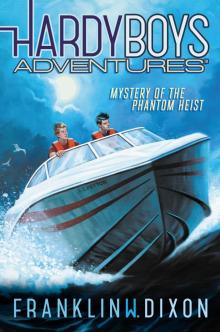 Mystery of the Phantom Heist
Mystery of the Phantom Heist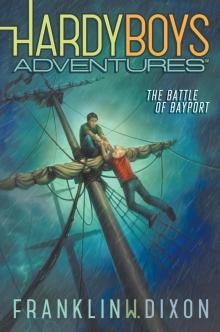 The Battle of Bayport
The Battle of Bayport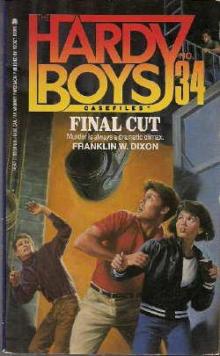 Final Cut
Final Cut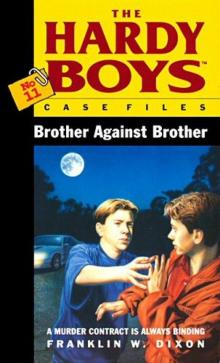 Brother Against Brother
Brother Against Brother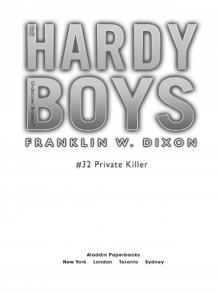 Private Killer
Private Killer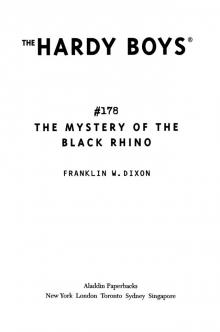 The Mystery of the Black Rhino
The Mystery of the Black Rhino Feeding Frenzy
Feeding Frenzy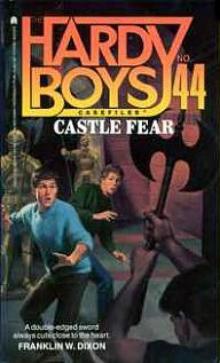 Castle Fear
Castle Fear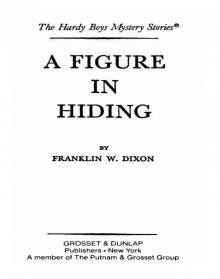 A Figure in Hiding
A Figure in Hiding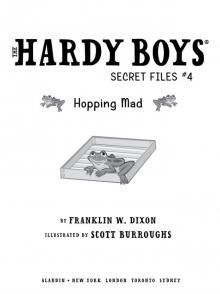 Hopping Mad
Hopping Mad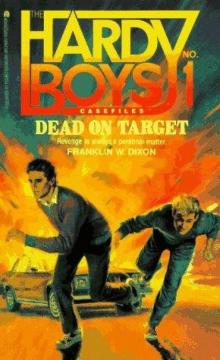 Dead on Target
Dead on Target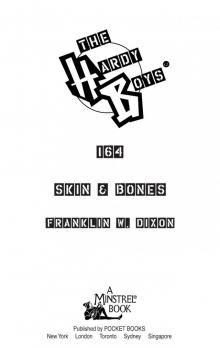 Skin and Bones
Skin and Bones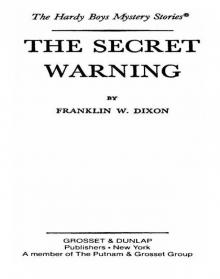 The Secret Warning
The Secret Warning Flesh and Blood
Flesh and Blood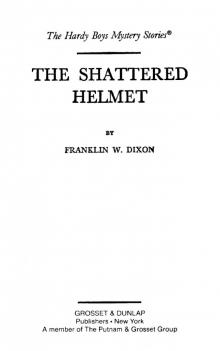 The Shattered Helmet
The Shattered Helmet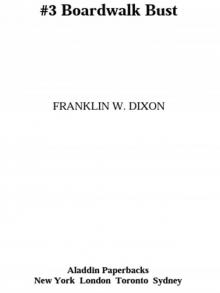 Boardwalk Bust
Boardwalk Bust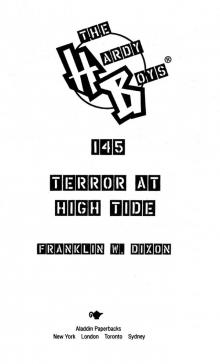 Terror at High Tide
Terror at High Tide In Plane Sight
In Plane Sight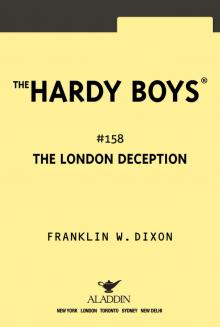 The London Deception
The London Deception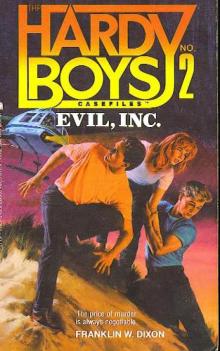 Evil, Inc.
Evil, Inc.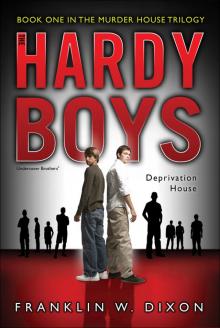 Deprivation House
Deprivation House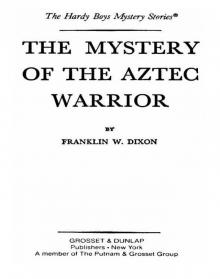 The Mystery of the Aztec Warrior
The Mystery of the Aztec Warrior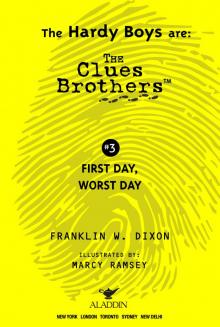 First Day, Worst Day
First Day, Worst Day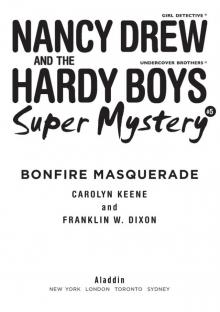 Bonfire Masquerade
Bonfire Masquerade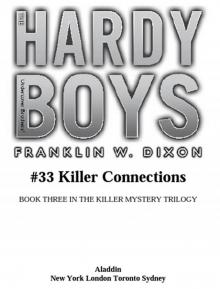 Killer Connections
Killer Connections Strategic Moves
Strategic Moves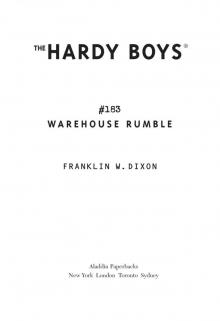 Warehouse Rumble
Warehouse Rumble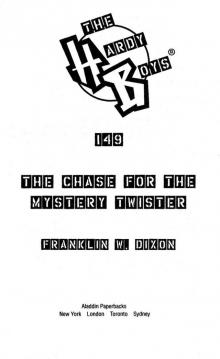 The Chase for the Mystery Twister
The Chase for the Mystery Twister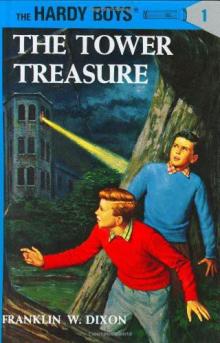 The Tower Treasure thb-1
The Tower Treasure thb-1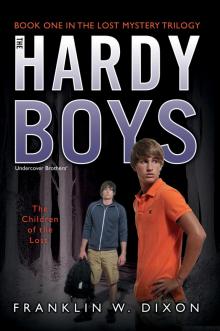 The Children of the Lost
The Children of the Lost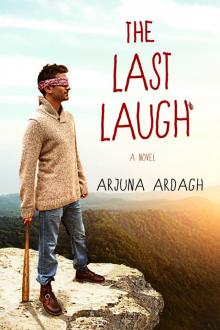 The Last Laugh
The Last Laugh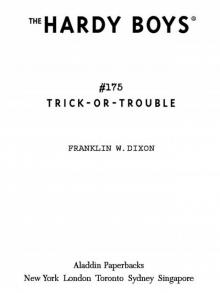 Trick-or-Trouble
Trick-or-Trouble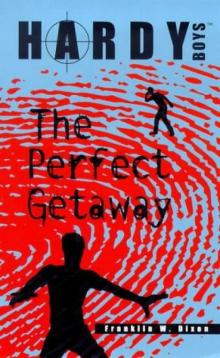 Perfect Getaway
Perfect Getaway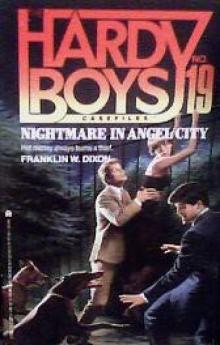 Nightmare in Angel City
Nightmare in Angel City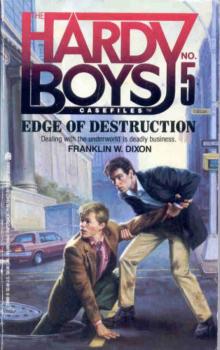 Edge of Destruction
Edge of Destruction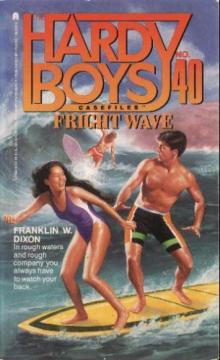 Fright Wave
Fright Wave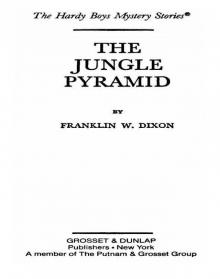 The Jungle Pyramid
The Jungle Pyramid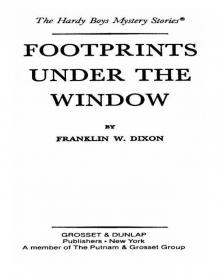 Footprints Under the Window
Footprints Under the Window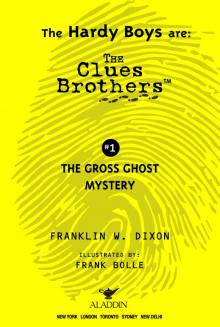 The Gross Ghost Mystery
The Gross Ghost Mystery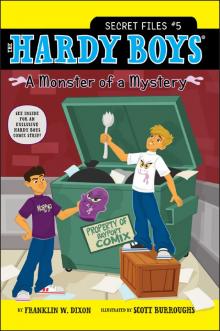 A Monster of a Mystery
A Monster of a Mystery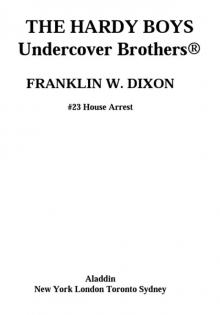 House Arrest
House Arrest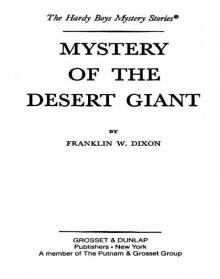 Mystery of the Desert Giant
Mystery of the Desert Giant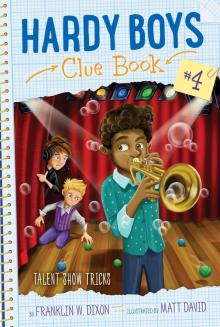 Talent Show Tricks
Talent Show Tricks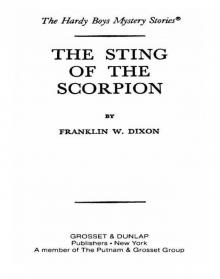 The Sting of the Scorpion
The Sting of the Scorpion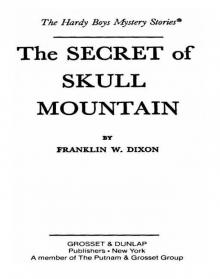 The Secret of Skull Mountain
The Secret of Skull Mountain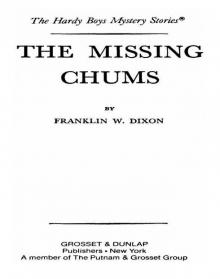 The Missing Chums
The Missing Chums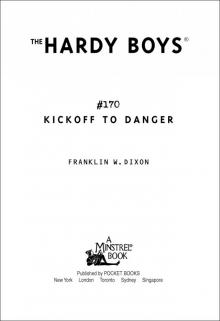 Kickoff to Danger
Kickoff to Danger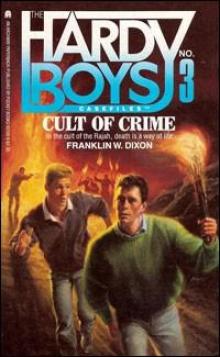 Cult of Crime
Cult of Crime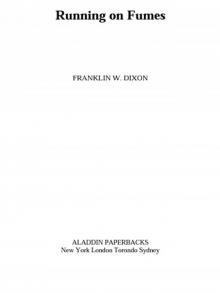 Running on Fumes
Running on Fumes Martial Law
Martial Law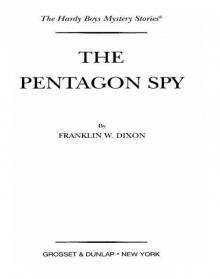 The Pentagon Spy
The Pentagon Spy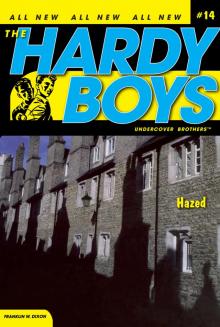 Hazed
Hazed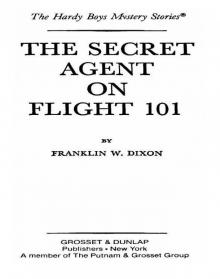 The Secret Agent on Flight 101
The Secret Agent on Flight 101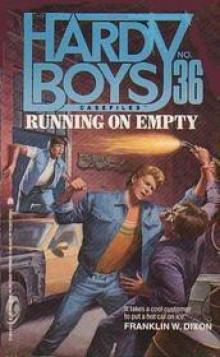 Running on Empty
Running on Empty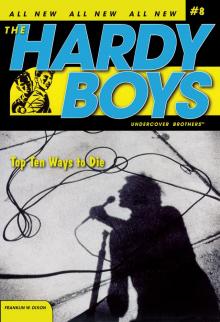 Top Ten Ways to Die
Top Ten Ways to Die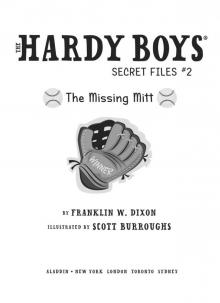 The Missing Mitt
The Missing Mitt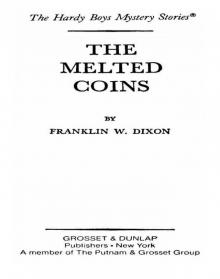 The Melted Coins
The Melted Coins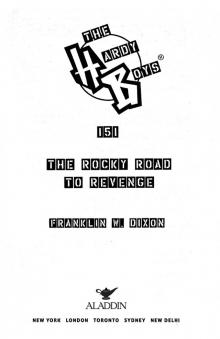 The Rocky Road to Revenge
The Rocky Road to Revenge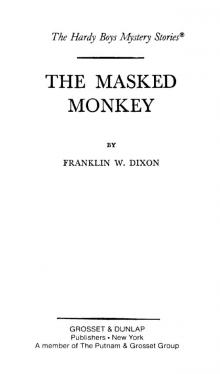 The Masked Monkey
The Masked Monkey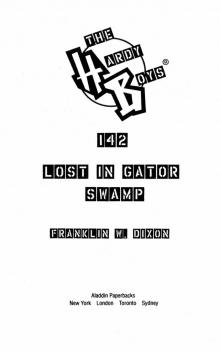 Lost in Gator Swamp
Lost in Gator Swamp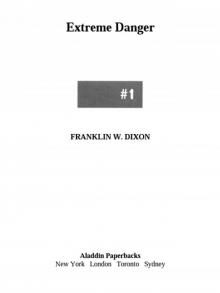 Extreme Danger
Extreme Danger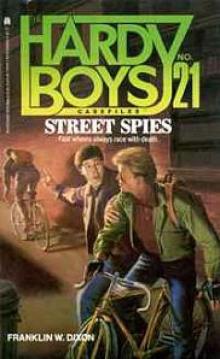 Street Spies
Street Spies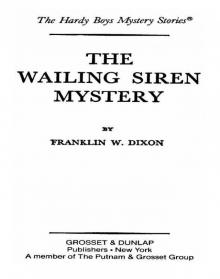 The Wailing Siren Mystery
The Wailing Siren Mystery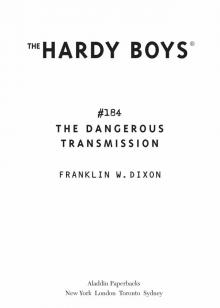 The Dangerous Transmission
The Dangerous Transmission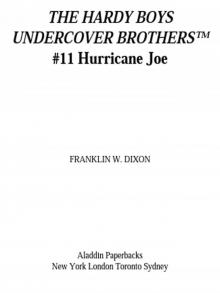 Hurricane Joe
Hurricane Joe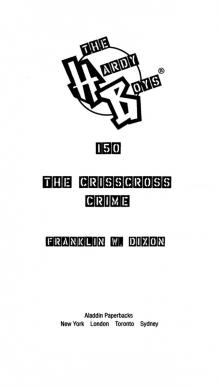 The Crisscross Crime
The Crisscross Crime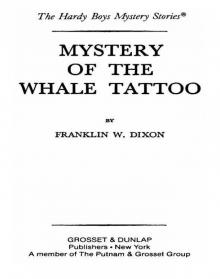 Mystery of the Whale Tattoo
Mystery of the Whale Tattoo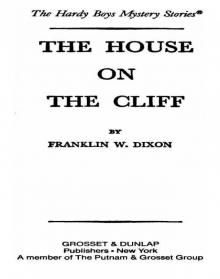 The House on the Cliff
The House on the Cliff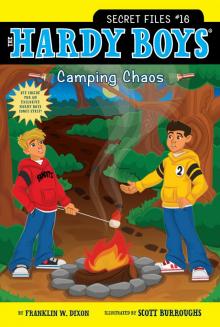 Camping Chaos
Camping Chaos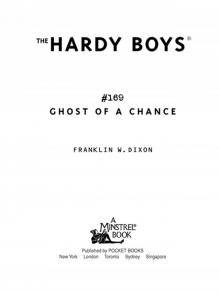 Ghost of a Chance
Ghost of a Chance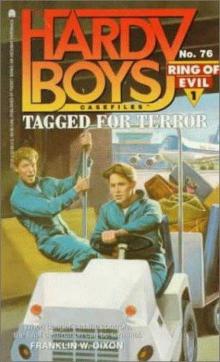 Tagged for Terror
Tagged for Terror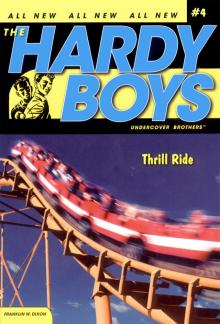 Thrill Ride
Thrill Ride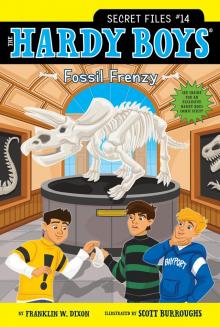 Fossil Frenzy
Fossil Frenzy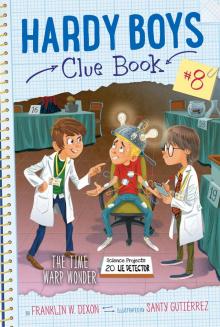 The Time Warp Wonder
The Time Warp Wonder Ghost Stories
Ghost Stories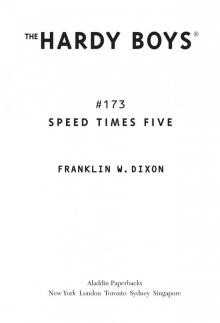 Speed Times Five
Speed Times Five What Happened at Midnight
What Happened at Midnight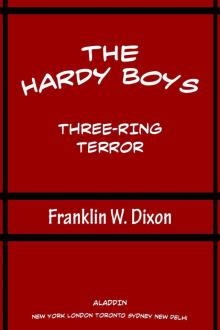 Three-Ring Terror
Three-Ring Terror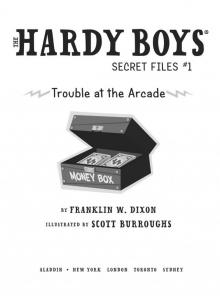 Trouble at the Arcade
Trouble at the Arcade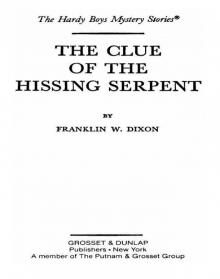 The Clue of the Hissing Serpent
The Clue of the Hissing Serpent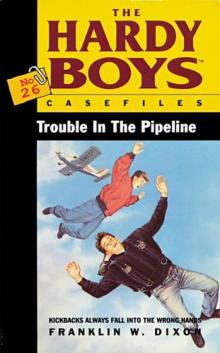 Trouble in the Pipeline
Trouble in the Pipeline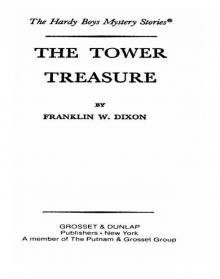 The Tower Treasure
The Tower Treasure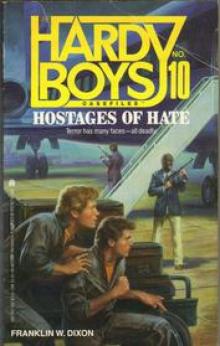 Hostages of Hate
Hostages of Hate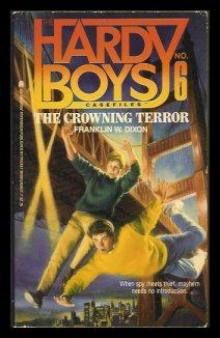 The Crowning Terror
The Crowning Terror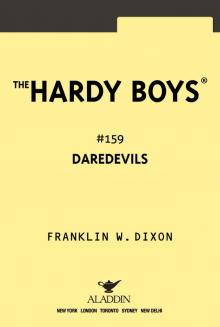 Daredevils
Daredevils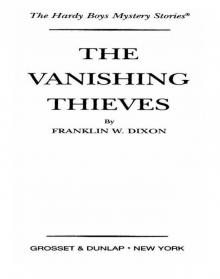 The Vanishing Thieves
The Vanishing Thieves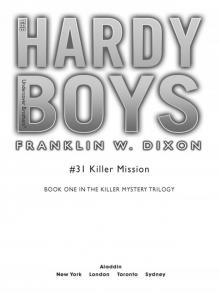 Killer Mission
Killer Mission The Mark of the Blue Tattoo
The Mark of the Blue Tattoo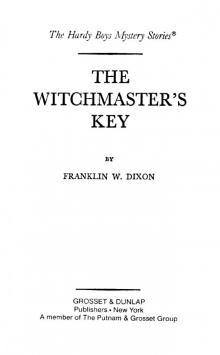 The Witchmaster's Key
The Witchmaster's Key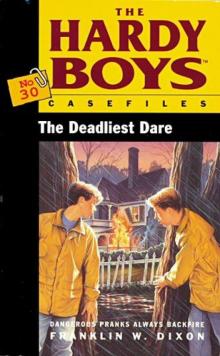 The Deadliest Dare
The Deadliest Dare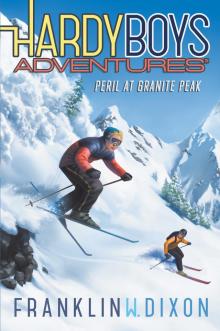 Peril at Granite Peak
Peril at Granite Peak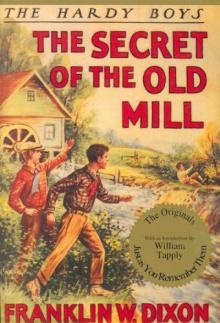 The Secret Of The Old Mill thb-3
The Secret Of The Old Mill thb-3 Rocky Road
Rocky Road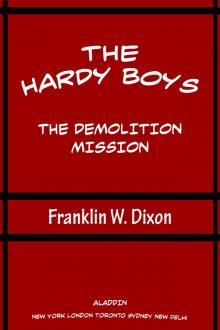 The Demolition Mission
The Demolition Mission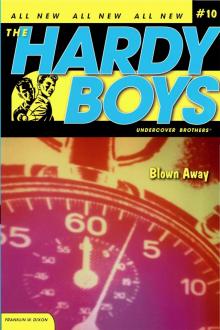 Blown Away
Blown Away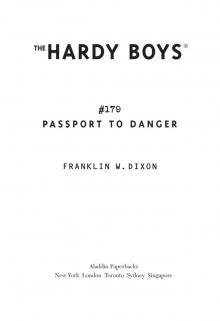 Passport to Danger
Passport to Danger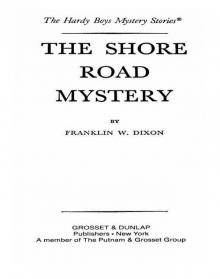 The Shore Road Mystery
The Shore Road Mystery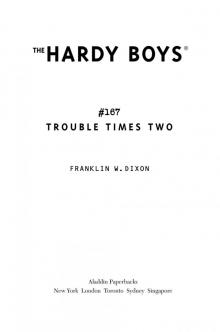 Trouble Times Two
Trouble Times Two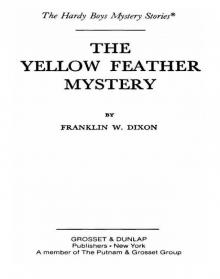 The Yellow Feather Mystery
The Yellow Feather Mystery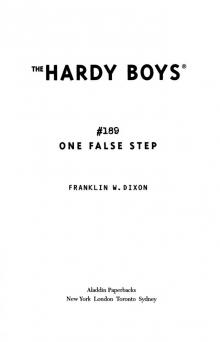 One False Step
One False Step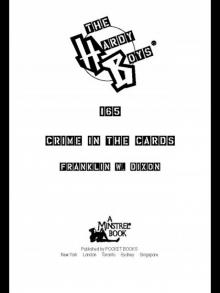 Crime in the Cards
Crime in the Cards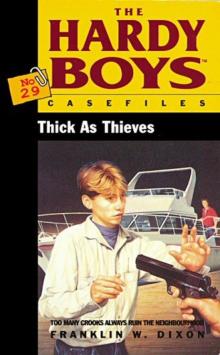 Thick as Thieves
Thick as Thieves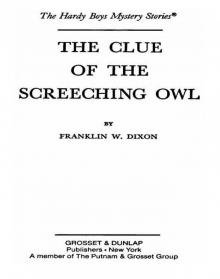 The Clue of the Screeching Owl
The Clue of the Screeching Owl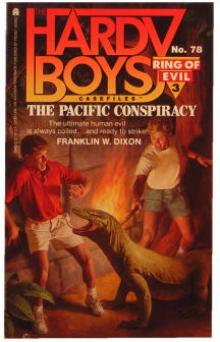 The Pacific Conspiracy
The Pacific Conspiracy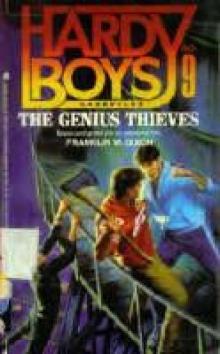 The Genius Thieves
The Genius Thieves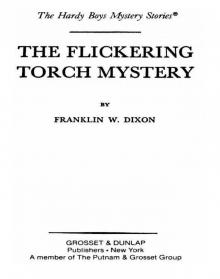 The Flickering Torch Mystery
The Flickering Torch Mystery Into Thin Air
Into Thin Air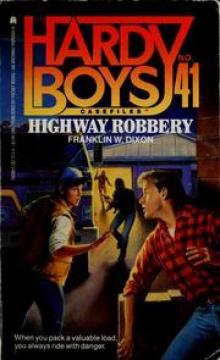 Highway Robbery
Highway Robbery Deadfall
Deadfall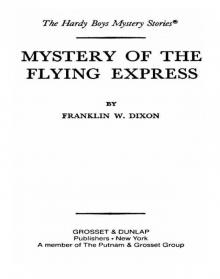 Mystery of the Flying Express
Mystery of the Flying Express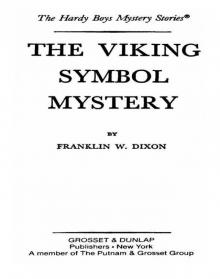 The Viking Symbol Mystery
The Viking Symbol Mystery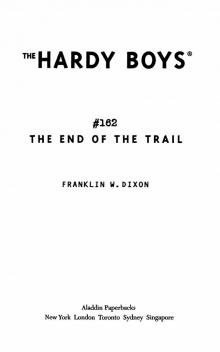 The End of the Trail
The End of the Trail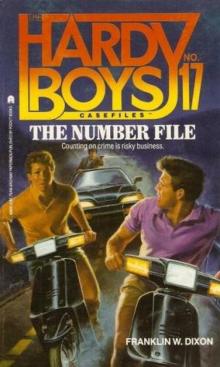 The Number File
The Number File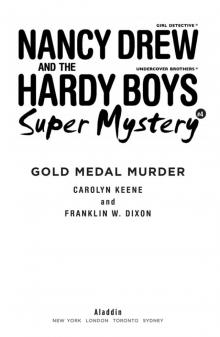 Gold Medal Murder
Gold Medal Murder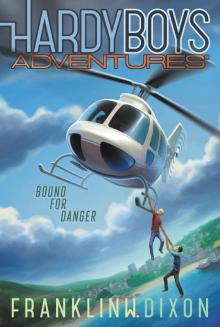 Bound for Danger
Bound for Danger Collision Course
Collision Course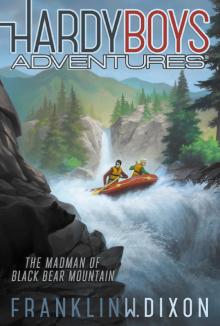 The Madman of Black Bear Mountain
The Madman of Black Bear Mountain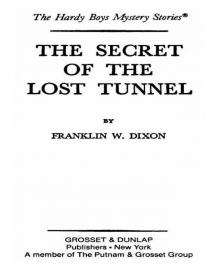 The Secret of the Lost Tunnel
The Secret of the Lost Tunnel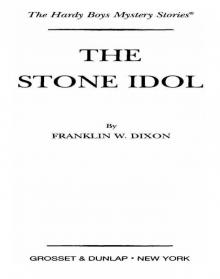 The Stone Idol
The Stone Idol The Secret of Pirates' Hill
The Secret of Pirates' Hill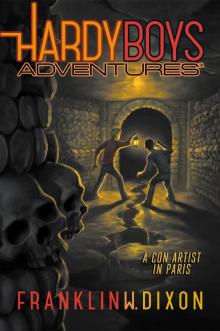 A Con Artist in Paris
A Con Artist in Paris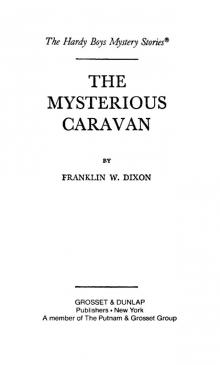 The Mysterious Caravan
The Mysterious Caravan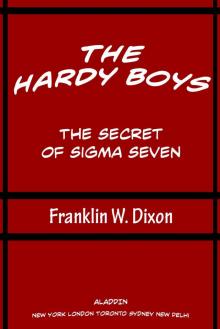 The Secret of Sigma Seven
The Secret of Sigma Seven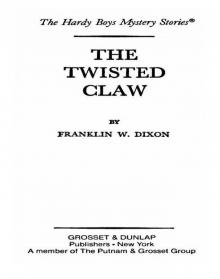 The Twisted Claw
The Twisted Claw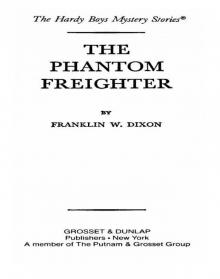 The Phantom Freighter
The Phantom Freighter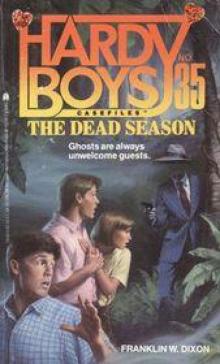 The Dead Season
The Dead Season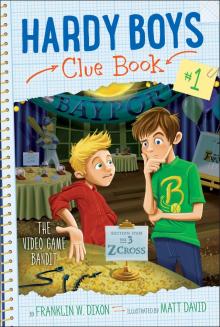 The Video Game Bandit
The Video Game Bandit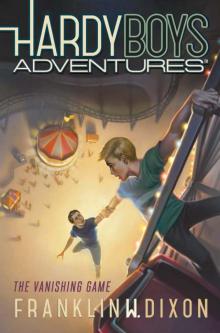 The Vanishing Game
The Vanishing Game Typhoon Island
Typhoon Island